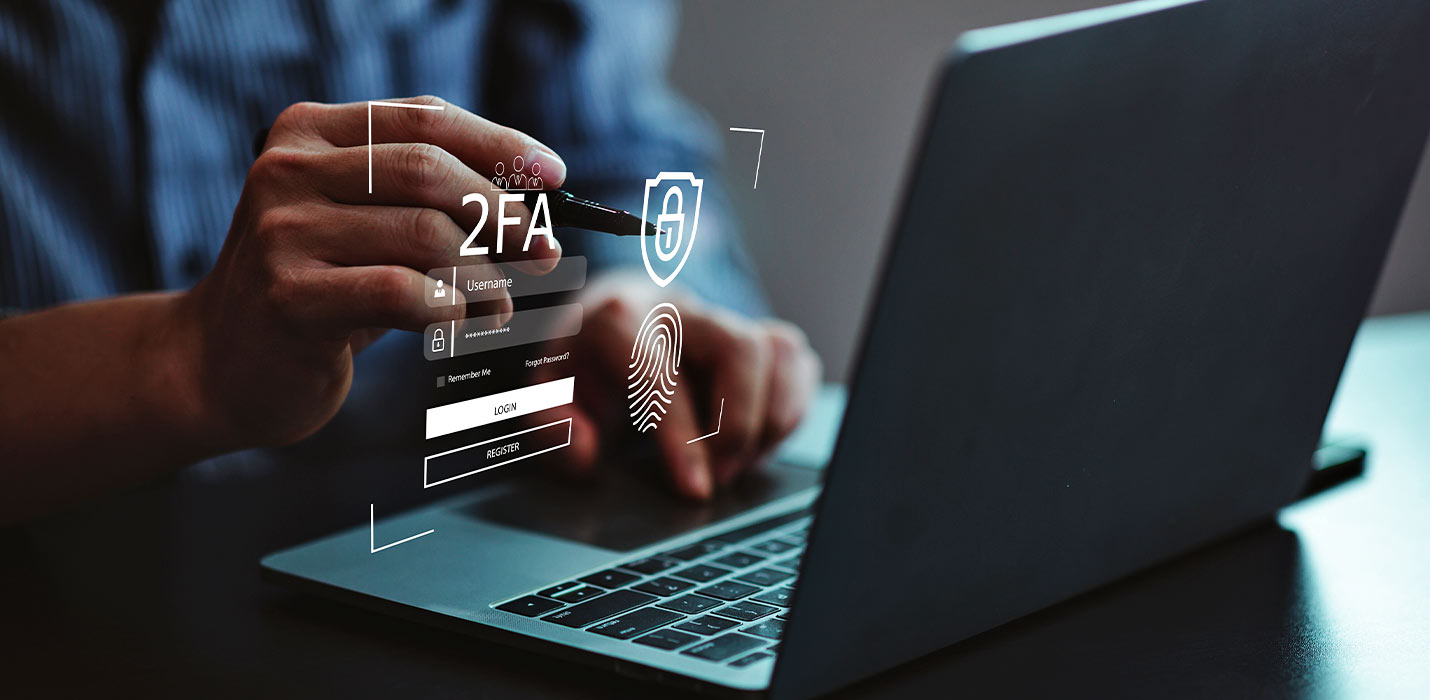Cybersecurity evolves daily, and staying current in 2024 demands proactive engagement. With AI-driven threats, quantum computing, and heightened regulations, it’s no longer about being reactive—cyber resilience is the goal. Businesses, individuals as well as governments are not new to these vulnerabilities, and this is what makes it important for us to learn and adapt to these latest trends.
In this blog post, we will look into the rising cybersecurity trends, along with a few practices that you help you stay ahead. We'll cover everything from cutting-edge AI threats to how quantum computing challenges encryption, to evolving cloud security strategies and compliance regulations.
1. Be A Part of Popular Cybersecurity Platforms Online
Staying informed is the easiest yet most critical way to stay ahead. By subscribing to well-established cybersecurity platforms, you’ll have direct access to emerging threats, industry trends, and expert analysis. Top-tier sources like Dark Reading, Threatpost, and SC Media consistently deliver timely insights, while niche sources like CyberScoop bring you updates on new regulations and advancements in cybersecurity technologies.
Why It’s Important:
New threats and vulnerabilities arise every day, so real-time information is a necessity, not an option. Whether it's zero-day attacks or AI-driven phishing scams, the earlier you know, the faster you can act.
Key Action Steps:
- Subscribe: Sign up for newsletters from leading cybersecurity platforms. Curated content delivers must-know information right to your inbox.
- Set Alerts: Use Google Alerts to track keywords like "2024 cybersecurity trends," "AI cybersecurity threats," or specific malware families.
- Engage on Social Media: Follow these platforms on LinkedIn and Twitter. These channels often share quick updates or in-depth articles you don’t want to miss.
2. Engage with Cybersecurity Communities and Forums
Communities of professionals and enthusiasts provide valuable real-time discussions on trends and solutions to emerging threats. Platforms such as Reddit, Stack Overflow, and cybersecurity-specific forums like OWASP and Discord servers are excellent places to exchange knowledge. Spaces like these can help you learn from the experiences of others, and also provide you with a few valuable insights.
Why Communities Matter:
Crowdsourced intelligence offers a practical edge. It’s not just about hearing from experts but also from practitioners who deal with security threats every day. Many professionals share actionable advice, which can be applied directly to your strategies.
Key Action Steps:
- Join Communities: Start by joining forums like r/cybersecurity on Reddit or Stack Overflow for technical deep dives.
- Engage Regularly: Be an active part of discussions online and share your expertise. This fosters a stronger understanding and keeps you in the loop with evolving practices.
- Attend Virtual Events: A lot of online communities host virtual meetups or workshops. Make it a habit to attend and stay connected.
3. Leverage Artificial Intelligence and Machine Learning Trends
AI as well as machine learning (ML) is said to show a huge impact on cybersecurity in the coming years. Not only do they bolster defences, but cybercriminals are making use of such technologies to escalate these attacks via automation. As AI evolves, so must your understanding of its role in both protection and exploitation.
AI in Cybersecurity Today:
- Automated Threat Detection: AI can identify patterns and anomalies within enormous data sets, providing earlier detection of potential threats.
- AI-Powered Phishing Attacks: AI is also being used to craft highly targeted and convincing phishing attacks that are harder to detect.
- AI-Driven Incident Response: AI can expedite response times by automating triage and initial responses to security breaches.
Key Action Steps:
- Follow AI Research: Platforms like arXiv or Google Scholar regularly publish groundbreaking AI and cybersecurity research.
- Invest in AI Tools: Explore tools like CrowdStrike or Vectra AI to understand how automated threat detection is shaping modern cybersecurity.
- Take Courses: Gain a competitive edge with AI-focused cybersecurity courses from Coursera, Udemy, and Cybrary.
4. Stay Informed About Quantum Computing’s Impact on Security
Among future technologies, quantum computing is likely to be one of the most game-changing. While still emerging, its potential to upend modern cryptography has sparked a race to develop quantum-resistant encryption algorithms. Staying informed about the advancements in quantum is now important for long-term cybersecurity strategy.
Why Quantum Computing Matters:
- Breaking Cryptography: Quantum computers will be able to break existing encryption methods, potentially compromising sensitive data on a massive scale.
- Quantum-Resistant Encryption: Researchers are already developing algorithms that can withstand quantum attacks, and staying informed on these developments will be critical.
Key Action Steps:
- Track Developments: Follow quantum computing news on platforms like Quanta Magazine or MIT Technology Review.
- Monitor Research: Keep up with journals such as Nature or IEEE Spectrum for the latest in quantum-resistant encryption.
- NIST Updates: NIST is taking the lead in crafting cryptographic standards that are secure against future quantum computing threats. Stay tuned to their announcements for new standards.
5. Monitor Cloud Security Developments
The cloud has become a prime target for cyberattacks as businesses increasingly migrate to cloud-based services. In 2024, cloud security remains paramount, with trends like Zero Trust architecture, multi-cloud security, and API protection taking centre stage.
Key Cloud Security Trends:
- Multi-Cloud Security: As businesses adopt multiple cloud providers, security management becomes more complex, requiring unified solutions.
- API Security: APIs are often overlooked, yet they represent one of the largest attack vectors in cloud environments.
Key Action Steps:
- Follow Providers: Subscribe to security blogs and white papers from major cloud providers like AWS, Azure, and Google Cloud to stay updated on best practices.
- Learn Cloud Security Tools: Familiarise yourself with tools like HashiCorp Vault, Kubernetes Security, or Aqua Security.
- Join Cloud Security Alliance: The Cloud Security Alliance (CSA) provides resources and certifications on cloud security best practices.
6. Keep Up with Regulatory and Compliance Changes
The cybersecurity regulatory environment is undergoing rapid changes, with new frameworks being established around the world. Data privacy regulations like GDPR and CCPA have been updated to address AI-driven data collection, and other sector-specific frameworks are adapting as well.
Major Developments To Watch Out For in 2024
- GDPR: Updates now address how businesses handle AI-driven data processing and collection.
- CCPA and CPRA: Expanding to include stricter consumer data protection requirements.
- CMMC: The Cybersecurity Maturity Model Certification (CMMC) is evolving, particularly affecting those working with U.S. government contracts.
Key Action Steps:
- Follow Regulatory Bodies: Keep up with industry news by subscribing to newsletters from organizations like the IAPP or NIST.
- Work with Legal Teams: Ensure close collaboration with your legal and compliance teams to adapt to new regulations as they emerge.
- Monitor ISO Standards: Keep an eye on updates to ISO standards related to cybersecurity frameworks.
7. Attend Cybersecurity Conferences and Events
Conferences are an excellent way to stay ahead of emerging trends, technologies, and best practices. With virtual attendance options continuing in 2024, participating in events from anywhere will remain hassle-free.
Must-Attend Conferences in 2024:
- Black Hat USA: Known for its technical deep dives and cutting-edge research, this is a must for security professionals.
- RSA Conference: A premier event for understanding the latest in threat intelligence, cloud security, and incident response strategies.
- DEF CON: A legendary hacker convention, providing unparalleled insights into real-world vulnerabilities and security research.
Key Action Steps:
- Register Early: Sign up for these events through their official websites and make it a priority to attend.
- Follow Social Media Hashtags: Stay connected with conference happenings in real time by following their social media channels and hashtags.
- Participate in Webinars: Many of these events offer supplementary webinars and workshops—take advantage of these learning opportunities.
8. Pursue Continuous Education and Certifications
Top Certifications for 2024:
- Certified Information Systems Security Professional (CISSP): One of the most respected certifications for senior-level security professionals.
- Certified Ethical Hacker (CEH): Focuses on penetration testing and is ideal for professionals involved in vulnerability assessments.
- Certified Cloud Security Professional (CCSP): Vital for professionals dealing with cloud-based security.
What Other Factors Should Be Taken Into Account in Cybersecurity Trends?
The Growing Challenges in Automotive Cybersecurity
Modern cars come with sophisticated software that enables features like engine timing, cruise control, and driver assistance systems, along with easy communication options. However, despite these advancements, cars remain susceptible to hacking due to their reliance on automated functions and communication systems. Hackers can exploit weaknesses in technologies like Bluetooth and WiFi to gain control of vehicles or even eavesdrop through built-in microphones. As automated vehicles become more common, these security vulnerabilities are expected to increase, making strong cybersecurity measures essential, especially for self-driving cars.
Making Cybersecurity Use of Artificial Intelligence
AI has become essential for boosting cybersecurity across various industries. It powers automated systems that handle tasks like facial recognition, threat detection, and natural language processing using machine learning. However, the same technology is also used by malicious actors to design sophisticated attacks that bypass defences. Despite these challenges, AI-based threat detection tools empower cybersecurity teams, helping them respond swiftly to emerging threats.
Mobile Devices: An Increasingly Visible Cyber Attack Target
The popularity of mobile devices has made them prime targets for cybercriminals. This has led to a surge in malware and attacks aimed at personal data and mobile banking. Using smartphones for tasks like messaging and online banking increases the chances of security breaches. As cyber threats evolve, protecting mobile devices is becoming more crucial, with trends pointing to a rise in smartphone-specific malware and viruses.
Cloud Security Issues and Remedies
As organizations increasingly rely on cloud services, it’s essential to establish robust security protocols for data storage and management. Despite the strong security measures provided by cloud providers, vulnerabilities can still arise from phishing attacks, malware, or human errors. To minimize risks and safeguard sensitive data stored in the cloud, ongoing monitoring and regular updates are essential.
Data Breach: An Ever-Prevalent Issue
Globally, individuals and organizations remain highly concerned about data breaches, as even minor software vulnerabilities can expose them to risks. Regulations like the GDPR and CCPA emphasize the importance of robust security measures to enhance data protection and privacy rights. Businesses need to comply with the rules and regulations and also implement security strategies to mitigate the risks that are associated with data breaches.
Leaning Into Automation to Improve Cybersecurity
Automation is crucial for managing the increasing volume of data and improving security processes. It helps security professionals by enabling quick and efficient responses to new threats, allowing them to handle their heavy workloads more effectively. When security measures are integrated into agile development practices, especially for large and complex applications, it leads to more secure software solutions.
Sophisticated Ransomware Incidents
Targeted ransomware attacks present a serious danger to businesses that depend on particular software systems, which can result in serious repercussions. Recent events, such as the WannaCry attack on healthcare facilities, highlight the critical need for robust cybersecurity measures. To effectively reduce these risks, organizations must stay alert to ransomware threats and develop proactive strategies.
Increasing Cyber Warfare Supported by the State
Cyberattacks that target sensitive data and vital infrastructure are becoming more common as a result of the growing tensions between major world powers. Elevated security precautions are necessary for high-profile events like elections since they are susceptible to cyber threats.
Using Awareness to Reduce Insider Threats
Individual mistakes continue to contribute significantly to data breaches, especially regarding insider threats in organizations. It's essential to raise awareness and provide employees with thorough training programs to help reduce this risk. By training employees to identify and tackle these vulnerabilities, organizations can cultivate a robust culture of cybersecurity awareness. This strategy when implemented protects sensitive information and reduces the impact of insider threats effectively.
Handling Cybersecurity Issues in Distance Learning Settings
As employees adapt to remote work during the pandemic and navigate less secure network setups, new cybersecurity challenges tend to keep increasing. To effectively protect remote workers from cyber risks, organisations need to prioritise the adoption of robust security procedures, like multi-factor authentication and secure VPNs.
Countering Attacks via Social Engineering
Phishing and identity theft, two forms of social engineering attacks, continue to pose serious threats to organizations by exploiting human vulnerabilities to gain unauthorized access to confidential information. To reduce the risks associated with these attacks, it's crucial to provide employee training and establish preventive security measures.
Conclusion: Continuous Learning Is Key to Cybersecurity in 2024
Being aware of cybersecurity trends requires a unique approach. Subscribe to reliable news sources, engage in active communities, embrace emerging technologies like AI and quantum computing, and continuously update your certifications. Most importantly, stay agile. The landscape changes rapidly, and those who remain adaptive, informed, and proactive will always have the upper hand.
By putting these steps into action, you can make certain that you’re not just reacting to threats but also staying ahead of the game in 2024.
FAQ
1. What kinds of cybersecurity threats are most prevalent right now?
The most common cybersecurity dangers that exist today include ransomware, phishing attempts, several types of malware, including viruses and Trojan horses, insider threats, and Distributed Denial of Service (DDoS) assaults.
2. How can people and companies better safeguard themselves?
By regularly upgrading their software, using strong and unique passwords, using multi-factor authentication, training employees on cybersecurity best practices, and spending money on trustworthy antivirus and anti-malware software, individuals and organisations can improve their cybersecurity.
3. How will new technology affect cybersecurity in the future?
Emerging technologies like AI and IoT offer cybersecurity both great opportunities and difficult difficulties in the future. Artificial Intelligence (AI) can improve threat detection and response capabilities, but it also creates opportunities for hackers to take advantage of. In a similar vein, malevolent actors can exploit new vulnerabilities brought forth by IoT devices. Future cybersecurity efforts must adapt to accept and integrate these technologies within all-encompassing defence strategies to effectively protect against evolving threats.



















 Tech Consultant
Tech Consultant 




